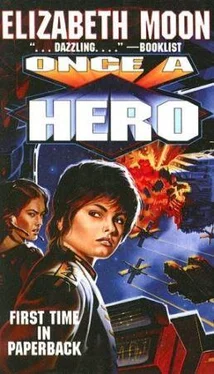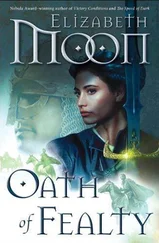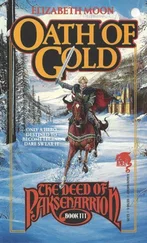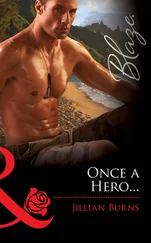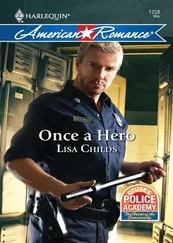Elizabeth Moon - Once a Hero
Здесь есть возможность читать онлайн «Elizabeth Moon - Once a Hero» весь текст электронной книги совершенно бесплатно (целиком полную версию без сокращений). В некоторых случаях можно слушать аудио, скачать через торрент в формате fb2 и присутствует краткое содержание. Жанр: Космическая фантастика, Боевая фантастика, на английском языке. Описание произведения, (предисловие) а так же отзывы посетителей доступны на портале библиотеки ЛибКат.
- Название:Once a Hero
- Автор:
- Жанр:
- Год:неизвестен
- ISBN:нет данных
- Рейтинг книги:3 / 5. Голосов: 1
-
Избранное:Добавить в избранное
- Отзывы:
-
Ваша оценка:
- 60
- 1
- 2
- 3
- 4
- 5
Once a Hero: краткое содержание, описание и аннотация
Предлагаем к чтению аннотацию, описание, краткое содержание или предисловие (зависит от того, что написал сам автор книги «Once a Hero»). Если вы не нашли необходимую информацию о книге — напишите в комментариях, мы постараемся отыскать её.
Once a Hero — читать онлайн бесплатно полную книгу (весь текст) целиком
Ниже представлен текст книги, разбитый по страницам. Система сохранения места последней прочитанной страницы, позволяет с удобством читать онлайн бесплатно книгу «Once a Hero», без необходимости каждый раз заново искать на чём Вы остановились. Поставьте закладку, и сможете в любой момент перейти на страницу, на которой закончили чтение.
Интервал:
Закладка:
The groom offered his linked hands, and she mounted; he unclipped the lead and handed her the end to tuck into the saddle ring. “He is good, but not too fast,” the groom said, and opened the gate into the upper pastures.
She turned the horse’s head onto the trail that would, hours later, lead to her valley. Eventually her stiff body relaxed into the rhythm of its walk, and she made herself look around. Morning light lit the recesses of the mountains on her right, and the vast rolling pastures that spread from their foot as far east as she could see.
She could remember riding out here from childhood. She had always taken a deep breath, going out the gate, because it meant freedom. Thousands of hectares, dozens of trails, hidden wooded hollows even in this open grazing land, and all the intricate topography of the mountains . . . no one could find her, once she was out of sight of the house. Or so she’d thought.
She took the deep breath, and it caught in her throat. Anger sat on one shoulder, and grief on the other; the stink of old lies filled her nose and she could not think of anything else. She had lived through the assault itself—she had, thanks to Seb Coron, outlived the assailant. But she had not outlived the effects . . . worst of all effects, the lies.
The horse ambled on, carrying her along as time did, mere passage without change . . . without the right change . . . without healing. She could ride forever—the horse slowed, and she looked up to find they’d come to a fork in the trail; she legged it to the right—and it would not help. Nothing would help. Nothing could help. Nothing on Altiplano, at least.
At the second fork, she turned right again. It was stupid, going to the valley when she felt like this, and yet it had helped before. At other bad times in her life, she had gone there and found peace, at least for awhile. She rode on, seeing little, hearing little. It hurt so much. It hurt beyond hurting, to the point where pain became a white fog, as the physical pain had been then.
She argued with herself, part of her defending her family even now. It wasn’t true they had done nothing: the man was dead. But that was Seb Coron, doing it for her father, not her father doing it for her . And what if Coron had lied about that? It wasn’t true that her father hadn’t cared: he’d done what he thought would help. But it hadn’t helped, and he hadn’t changed his mind. He, whose rule had been “If one thing doesn’t work, try another .”
She rode beside the creek now, but its spring-full rushing made only a white noise she found annoying. It was too loud. In the shade of the trees, she felt cold; in the sun she felt scorched. The horse sighed, and pulled a little toward the water. She halted it, clambered off feeling every stiff muscle, and led it down to drink. It laid its lips on the water and sucked; she could see the gulps rising up its gullet. She waited until it was finished, until it lifted its head and gave her a look and then tried to stray off toward some buttonweed twigs. She didn’t want to climb back on, but she had to.
She walked instead, leading the horse, until her legs felt better. By the sun, it was late morning. She didn’t really want to go on to the valley but where else could she go? Someone would ask, knowing where she always went . . . she pulled herself back into the saddle, and rode on.
The valley was smaller than she remembered, and she could feel nothing for it. The pines, the poplars, the creek, the meadow. She looked around it, trying to feel something . . . it was hers, it would always be hers . . . but all she felt was pain and emptiness. She slid off the horse and took the bit out of its mouth. She could walk around and let it graze for an hour before heading back. She remembered to loosen the girth, then took down a water bottle and drank. Her body wanted food, but her mind did not; she made it halfway through the lunch the cooks had packed for her before her mind won the battle, and she threw up what she’d eaten.
She felt faint, then, and sat on the cold ground with her head down on her knees; the horse snatched at the grass nearby, the ripping and chewing of grass punctuating her thoughts. What could she do? Emptiness behind her, emptiness before her.
In the middle of that emptiness, those few vivid moments when she had done something right, and saved someone else. Heris Serrano. Vida Serrano. What would they say now, if they knew all this? Would it explain what the admiral had wanted explained? Would it change anything? Or would it be worse, far worse, to let them know what had happened to her? She already had black marks against her; she had known from childhood that nothing in a military career is ever completely forgotten or forgiven. If she became not only the colorless, ordinary young officer from a backwoods planet, who just happened to do the right thing once and save a Serrano neck . . . if she admitted that she was damaged, fractured, prone to nightmares . . . that had to put her in more jeopardy. That had to risk being thrown out, sent home . . . except she had no home. Not this valley, not anywhere.
When her head cleared a little, she made herself drink again, and eat the other half of lunch. This time it stayed down. It tasted like dust and wood, but it stayed down.
She was home well before dark, handing over the dry, cool horse to the groom with thanks. Her stepmother hovered in the hall; Esmay nodded politely.
“I rode too far,” she said. “I need a long bath, and bed.”
“Could I send up a tray?” her stepmother asked. It was not her stepmother’s fault. It had never been her stepmother’s fault; she wasn’t sure her stepmother even knew. If her father had kept it such a secret, perhaps she didn’t know even now.
“Thank you,” Esmay said. “Soup and bread would be fine—I’m just too tired.”
She was able to get herself in and out of the bath, and she ate the food on the tray when it came. She put the tray back out in the hall, and lay on the bed. She could just see the corner of her great-grandmother’s note on its shelf. She didn’t want to see it; she didn’t want to see anything.
The next morning was marginally better. Luci, who clearly knew nothing, wanted her to come watch a schooling session with the brown mare. Esmay could think of no polite way out of it, and partway through the session came out of herself far enough to notice that the problem with the canter depart was Luci’s failure to keep her outside hip in place. Luci accepted this with good grace, and offered a tube of liniment for Esmay’s obvious stiffness. They went in to lunch together.
In the afternoon, her conscience would not let her avoid her great-grandmother any longer.
“You are very angry with me,” her great-grandmother said, not looking up from her embroidery. She had to use a thick lens and a special light, but she worked on it every day, Luci had said.
“I am angry,” Esmay said. “Mostly with him, I think.” Meaning her father, which surely her great-grandmother knew.
“I am still angry with him,” her great-grandmother said. “But I’m too old to put much energy into the anger. It’s very tiring, anger, so I ration it. A sharp word a day, perhaps.”
Esmay suspected humor at her expense, but the old woman’s face had a soft vulnerability that she’d never noticed before.
“I will say I was wrong, Esmaya. It was how I was brought up, but it was still wrong of me. Wrong not to tell you, and wrong to leave you as I did.”
“I forgive you,” Esmay said quickly. The old woman looked at her.
“Don’t do that. Don’t lie to me, of all people. Lies added to lies never make truth. You don’t forgive me—you can’t forgive me that fast.”
“I don’t . . . hate you.”
Читать дальшеИнтервал:
Закладка:
Похожие книги на «Once a Hero»
Представляем Вашему вниманию похожие книги на «Once a Hero» списком для выбора. Мы отобрали схожую по названию и смыслу литературу в надежде предоставить читателям больше вариантов отыскать новые, интересные, ещё непрочитанные произведения.
Обсуждение, отзывы о книге «Once a Hero» и просто собственные мнения читателей. Оставьте ваши комментарии, напишите, что Вы думаете о произведении, его смысле или главных героях. Укажите что конкретно понравилось, а что нет, и почему Вы так считаете.
